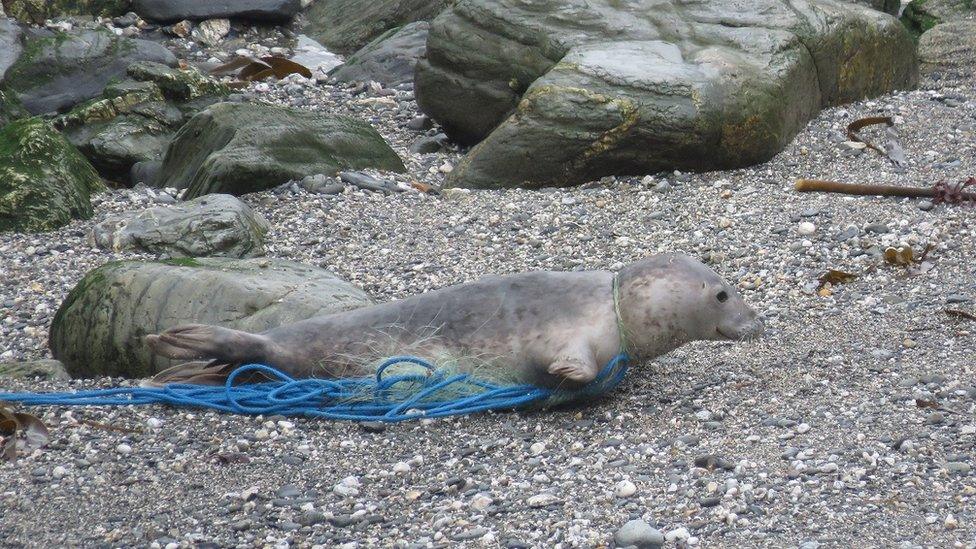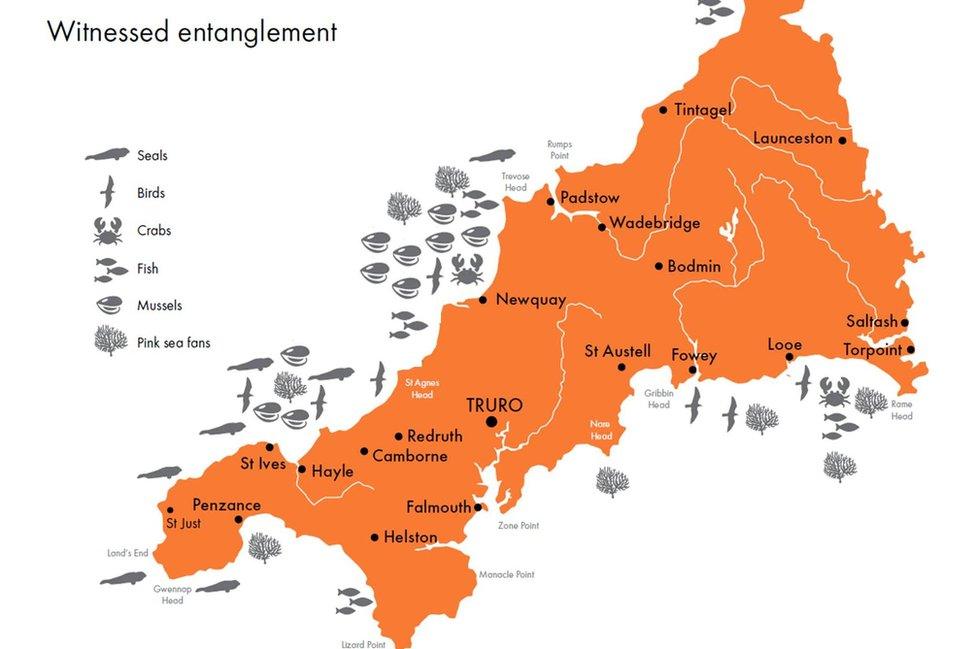Canadian 'ghost fishing gear' a threat to seals in Devon and Cornwall
- Published
'Ghost' fishing gear threat to seals in Devon and Cornwall
Fifty tonnes of discarded, lost or abandoned fishing nets, some from as far as Canada, have been found around the coast of Devon and Cornwall.
The so-called ghost gear is a danger to seals and other marine mammals which get entangled in the mesh, the Cornwall Seal Group said.
Fifty-two creatures including seals, birds, crabs and fish were found tangled in nets in a year-long survey.
Fishermen said they collect hundreds of tonnes of discarded items every year.
More on the 'ghost fishing gear' being a threat to seals, and other news from Devon and Cornwall

A seal struggles up a beach after getting stuck in fishing net mesh
Between November 2014 and October 2015, Cornwall Seal Group members surveyed ghost gear washed up on the beaches around Cornwall and parts of Devon and the Isles of Scilly.
They collected a total of 4,226 items, weighing 51 tonnes.

Christina Dixon, campaign manager at World Animal Protection, which commissioned the survey, said: "While this research was being conducted we saw lobster pot tags travelling 3,000 miles from Newfoundland to Shetland and pieces of gear hitching a ride on the Gulf Stream from Canada to Cornwall.
"Ghost gear is a trans-boundary problem and it's essential efforts to address it are undertaken collaboratively across countries."
Jim Portus, of the South West Fish Producers Organisation, said: "Fishermen do not like losing gear because it costs a lot of money, but they are working in a dynamic environment so it does get lost.
"I share the concerns of all people about this and the effect it has on the environment."
Fishermen collect hundreds of tonnes of ghost gear every year as part of the Fishing For Litter project, external, which is supported by the industry.
"We all need to contribute to the process of cleaning up our seas and beaches and I have a lot of sympathy with people raising concerns about the affect of lost gear," Mr Portus said.